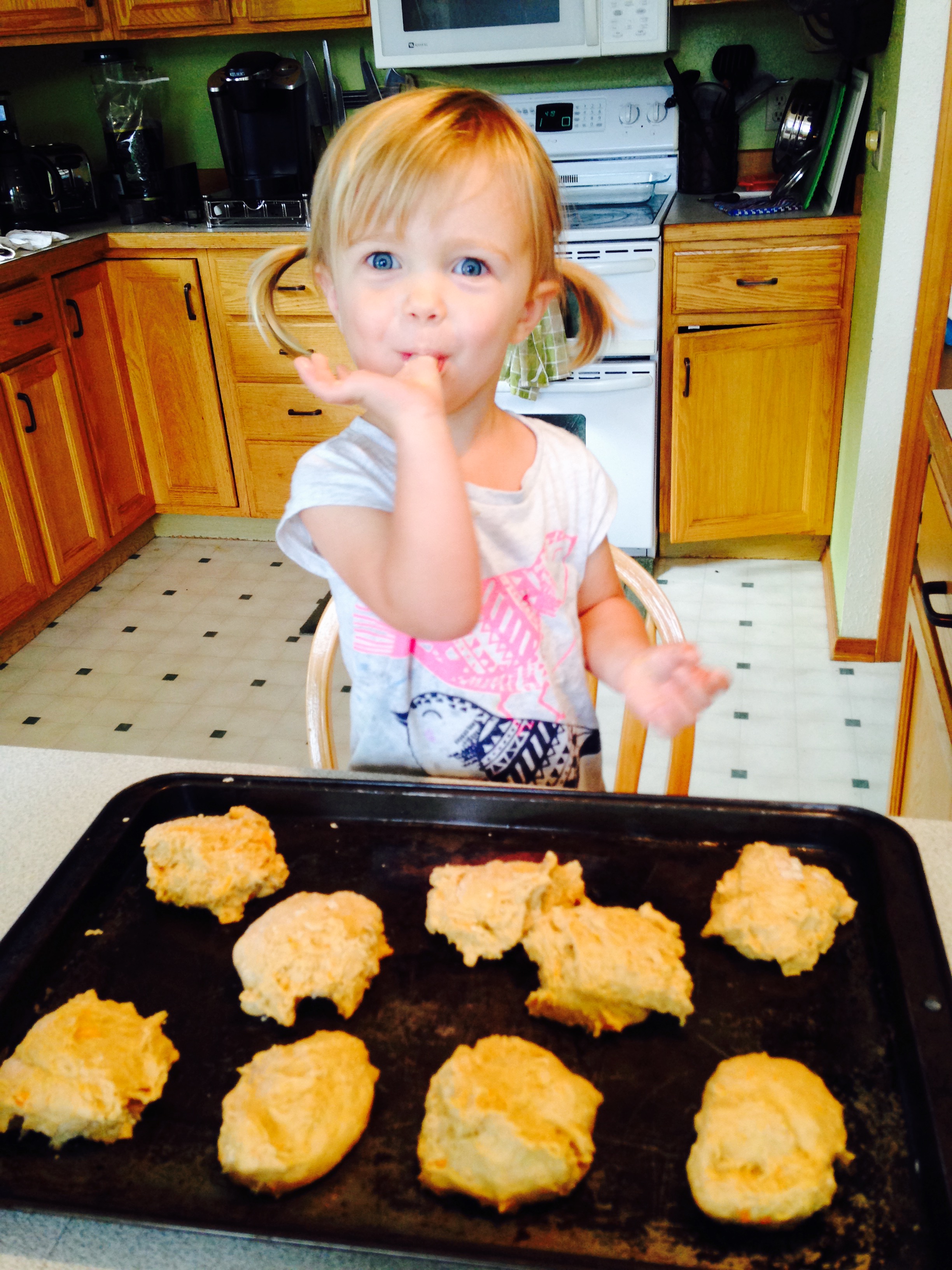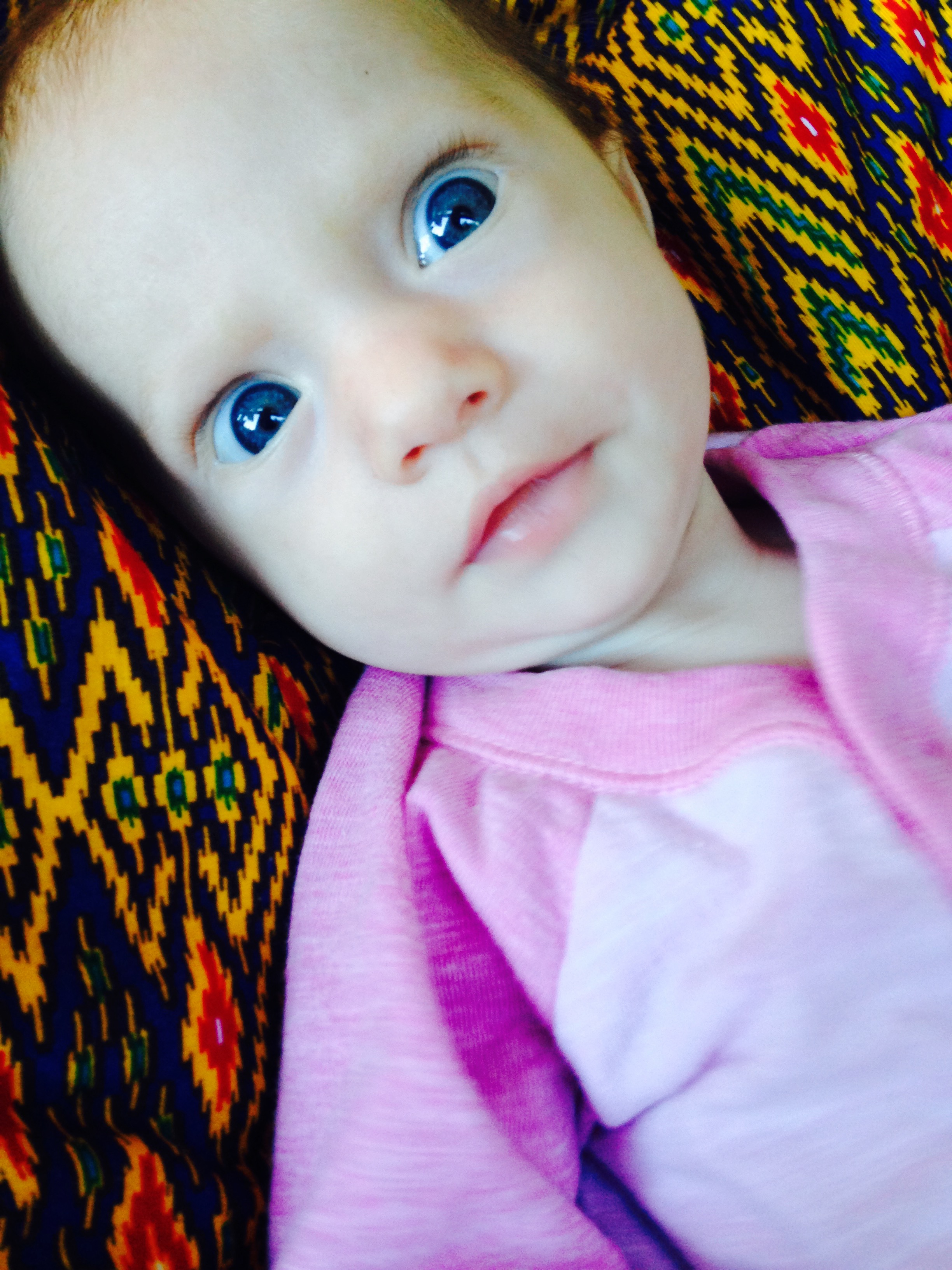The Sound of Sounds
Because there was enough sun to see the dark blue outline of the mountain across Sitka Sound this morning, I figured I could handle the google search I've been postponing all summer: "What does it sound like to hear through a cochlear implant?" I'd successfully made sweet potato muffins with a dough-testing three-year-old while talking to an auditory-verbal therapist on speakerphone while nursing while the laundry was going and by the time some friends came over, the muffins had cooled, the muffins had not fallen apart, the baby was asleep, and even though Zaley tried to mount my friend's one year old multiple times, the morning was good. After talking to the therapist, I'd gotten a much better idea of what it will be like to educate Anna.
Involved. Difficult. Constant. Different. All words that come to mind when our path as parents of a deaf child comes into clearer view. The therapist's points that stand out are these:
mountain across Sitka Sound this morning, I figured I could handle the google search I've been postponing all summer: "What does it sound like to hear through a cochlear implant?" I'd successfully made sweet potato muffins with a dough-testing three-year-old while talking to an auditory-verbal therapist on speakerphone while nursing while the laundry was going and by the time some friends came over, the muffins had cooled, the muffins had not fallen apart, the baby was asleep, and even though Zaley tried to mount my friend's one year old multiple times, the morning was good. After talking to the therapist, I'd gotten a much better idea of what it will be like to educate Anna.
Involved. Difficult. Constant. Different. All words that come to mind when our path as parents of a deaf child comes into clearer view. The therapist's points that stand out are these:
-On average, a deaf adult is on a fourth grade reading level.
-Most deaf adults who have learned how to listen through the auditory-verbal method (and through an assistive device like a hearing aid or a cochlear implant) can read on a level appropriate to their age.
-Cochlear implants do not sound like what we hear. They sound like electronic beeps which the brain then translates into meaning.
-"Being a mom and teaching a deaf child to hear is like being a mom times ten with more focus, intention, and tracking of progress."
-There are 40 lessons I can start with Anna right now.
-The therapist is putting me in touch with a girl who had congenital cmv and is starting her freshman year at Wake Forest this fall.
The last of these makes me have to put down the phone and mute it so I can cry a little bit. This is how I cry lately--in little bursts that rise quickly and then fall away just as fast.
 This week I started voluntarily listening to music, enjoying it half-way, through a thick layer of ambivalence. I notice acutely not only music now, but the effects of music: how it imparts levity, how changed I am by it, how it will alter emotions, deepen a mere surface-level feeling. I think of what Anna is missing, but I also think of what Zaley will be missing if I keep her right up against this big, laden lug of my sorrow.
This week I started voluntarily listening to music, enjoying it half-way, through a thick layer of ambivalence. I notice acutely not only music now, but the effects of music: how it imparts levity, how changed I am by it, how it will alter emotions, deepen a mere surface-level feeling. I think of what Anna is missing, but I also think of what Zaley will be missing if I keep her right up against this big, laden lug of my sorrow.
And Zaley is way into dance parties right now. She usually bangs on a plastic tambourine, but when I turned on the iPad a few days ago, I opened up some long-untouched joy for both of us. We have since been playing everything--bluegrass ditties, Beyonce, and Prince. Jason Derulo, Gregorian chants. Anna likes the dancing, too. I hold her straight out from my belly, with one hand under her back and one under her head. Her arms fall to her sides, and when I bounce lightly to the music with Zaley's fingers grasping one of my pant legs, Anna's eyes close slightly in pleasure and her mouth tilts up into the smallest of smiles. Sometimes in a room of pounding beats and motion, she grins till she falls asleep. I have never loved anyone like I love Anna.
Today seemed like the day. So when our friends left, I gathered my courage and looked up what I've been dreading: hearing what Anna will hear when she hears. I chose a youtube that looked like it would be less sentimental, more on the scientific side of things. And this is what I watched. I couldn't tell what the voice was saying on the first three channels of cochlear implant-simulated sound. It sounded like heavy sandpaper sliding across a table, or, even at its clearest, a garbled, deep, Darth Vader-like drone. Once revealed through regular speech, the human voice, perfectly enough, was asking, "What kind of bait do you use to catch salmon?"
 But then the music. I think of what my mom said when I first told her that Anna was deaf. She said it took her breath away. And listening to the cochlear implant version of music did that to me today, too. It sounds like 100 stomping feet underwater. It is not a song. It is not beautiful. It is not what I want to give to Anna when we give her the thing we call music. There is rhythm, yes, but when I heard the classical song with my normal hearing ears, the rich and irreplaceable depth of the tones, the high-pitched chiming completely lost by the transmission of the cochlear technology, I promptly fell apart.
But then the music. I think of what my mom said when I first told her that Anna was deaf. She said it took her breath away. And listening to the cochlear implant version of music did that to me today, too. It sounds like 100 stomping feet underwater. It is not a song. It is not beautiful. It is not what I want to give to Anna when we give her the thing we call music. There is rhythm, yes, but when I heard the classical song with my normal hearing ears, the rich and irreplaceable depth of the tones, the high-pitched chiming completely lost by the transmission of the cochlear technology, I promptly fell apart.
I had to sit down. I had Anna asleep in my arms, but Zaley climbed up in my lap, too, staring and silent in the terrible space my tears can create around her. She stroked my hair. She held my hand. She said, "Mommy, don't cry, here let's play with some beads."
After Zaley went to bed, I watched about 20 other simulations of cochlear implant sounds, searching for a voice that sounds human, and looking for the loveliness of a melody. And then I watched this movie about a deaf young woman at Oxford who has cochlear implants, and while the now familiar, tinny and synthetic sound of the implant saddened me, I took great hope in two things: she loves to dance ("it's where she can bring music to life"), and she loves to turn the implant off and be in a "sanctuary of silence" while she's doing sign language with her friends.
 I am trying to bookend my days with hope, even if sometimes the middles are a little mushy. I know that if I make Anna's suffering too much my own, I may be distorting the great pleasure she will take in life and bring to mine. Tomorrow might be a better day for music. Tonight, we walked home from sushi and there was sun touching the top of Luke's boat in the harbor. I am grateful for the light we still have. For the shape of the mountains against the sky. For the visual splendor this place puts in our life.
I am trying to bookend my days with hope, even if sometimes the middles are a little mushy. I know that if I make Anna's suffering too much my own, I may be distorting the great pleasure she will take in life and bring to mine. Tomorrow might be a better day for music. Tonight, we walked home from sushi and there was sun touching the top of Luke's boat in the harbor. I am grateful for the light we still have. For the shape of the mountains against the sky. For the visual splendor this place puts in our life.